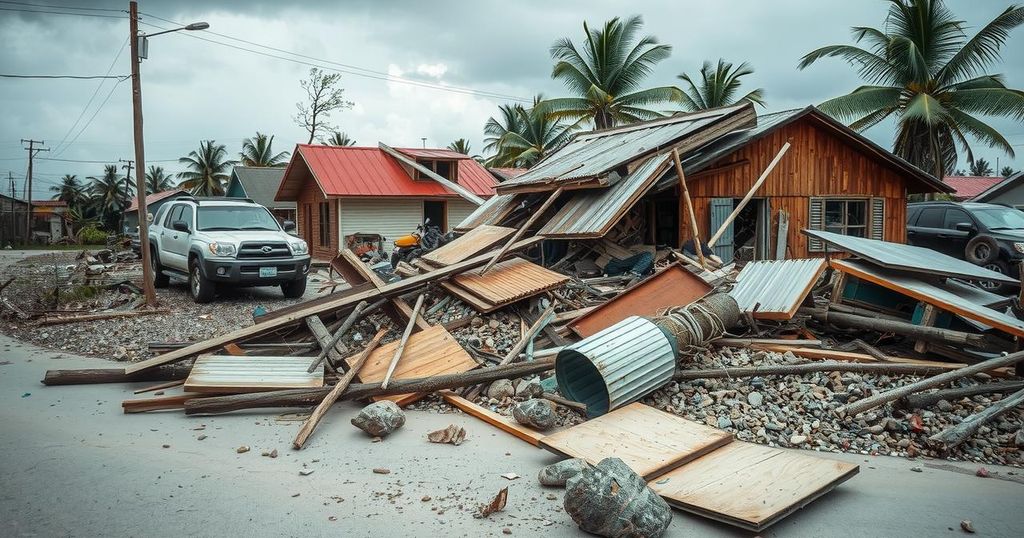Cyclone Chido Causes Devastation in Mozambique, Claiming Lives and Affecting Millions

Cyclone Chido has killed at least 34 people and injured 43 in northern Mozambique. The cyclone affected around 2.5 million individuals, causing extensive damage in Cabo Delgado province, where it made landfall. Rescue operations are ongoing as the region continues to experience severe weather effects from the cyclone.
The devastating impact of Cyclone Chido has resulted in the loss of at least 34 lives and left 43 individuals injured in northern Mozambique. The cyclone struck on Sunday and Monday, affecting three provinces, with initial reports indicating that rescue operations are ongoing. Luisa Meque, the chair of Mozambique’s National Institute for Disaster Risk Management and Reduction, reported that approximately 2.5 million people are now affected by the cyclone’s aftermath. Major damage has been observed, particularly in Cabo Delgado province, where the cyclone made landfall in Mecufi, causing widespread destruction and displacing thousands.
Cyclone Chido exemplifies the growing impact of climate change on Mozambique, a nation frequently beset by severe weather patterns, including floods and tropical cyclones during the rainy season from October to April. Experts anticipate an increase in both the frequency and intensity of these weather events, exacerbated by climate phenomena such as La Nina. Given the current condition of Mozambique, which is already grappling with drought, the cyclone’s aftermath could have sweeping implications on food security and community resilience.
In summary, Cyclone Chido’s ferocity has brought significant tragedy to Mozambique, underscoring the urgent need for disaster preparedness and climate adaptation strategies. The reported death toll and injuries, along with the extensive property damage, highlight the vulnerability of the affected regions to such natural disasters. As Mozambique continues to face the challenges posed by climate change, proactive measures must be prioritized to mitigate future impacts and enhance resilience among its communities.
Original Source: www.voanews.com








